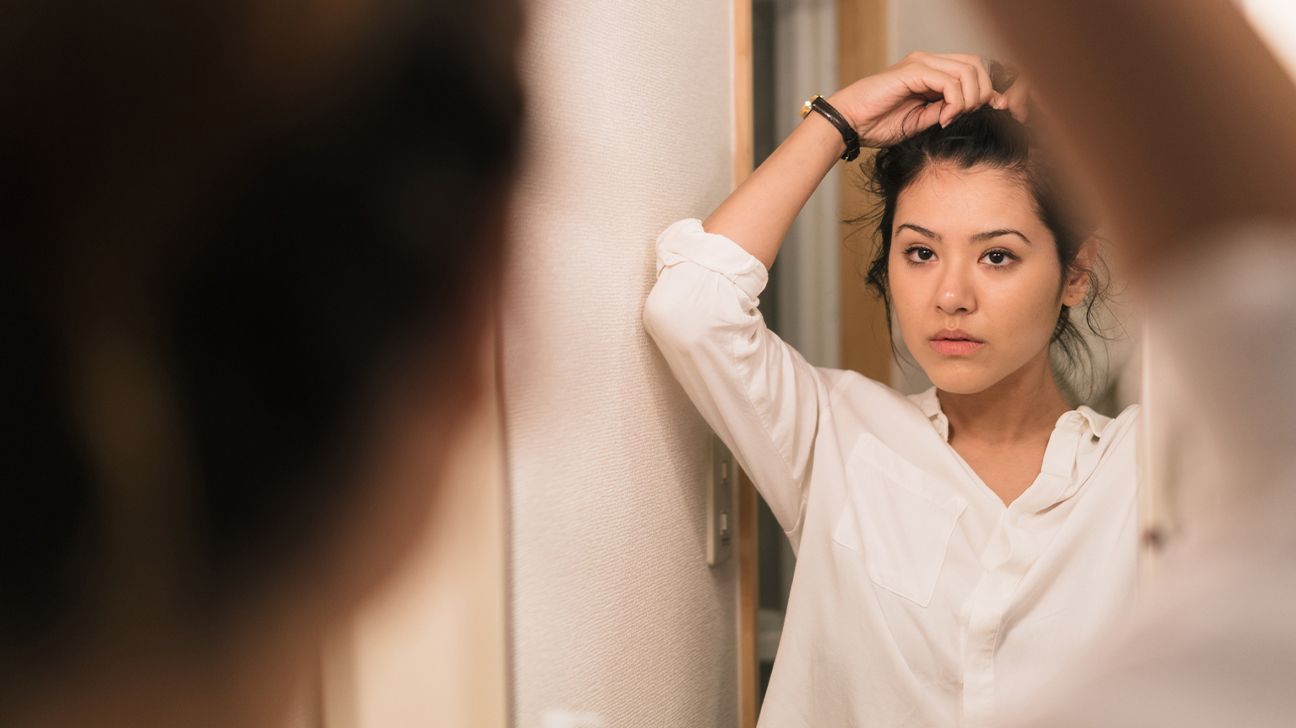6 Things I Want People to Know About Invisible Illnesses
September 18, 2021
Content created for the Bezzy community and sponsored by our partners. Learn More

Studio Marmellata/Stocksy United
Members of Bezzy’s chronic condition communities share the realities of their invisible experiences.
Just because an illness is invisible doesn’t mean it isn’t real. This is a fact that people living with invisible chronic conditions understand all too well.
Living with a chronic condition is often isolating. Dealing with symptoms that are largely invisible can make it even more isolating.
Many people living with chronic illnesses have to contend with others who can’t empathize with their experiences because their pain and symptoms are not visible. Sometimes it can feel like other people don’t even believe that what you’re experiencing is real.
Other times, individuals who request accommodations or need to use mobility aids are faced with judgment because they don’t “look sick enough.”
In some cases, people with chronic conditions may even be denied the assistance they need because they do not conform to someone else’s idea of what a “sick person” looks like.
Members of Bezzy PsA, Bezzy MS, Bezzy RA, and Bezzy IBD know firsthand what it’s like navigating life with an invisible illness — and they’re here to help.
Six community members shared what they wish other people understood about living with an invisible illness.


I may look healthy, but I’m in pain
“I hear the phrase, ‘but you look so healthy!’ all the time. I don’t wanna be the complainer or anything, but sometimes my back feels broken.
I hate not being able to sleep and then waking up to pain and sometimes sweat too.” — Manda, Bezzy PsA community member
I’m not just looking for sympathy
“I rarely sleep through the night without waking up with leg pain, hip pain, or a pain in my hands that feels like breaking glass.
People can’t see the condition, so there is little empathy. I don’t want to have to educate people on the condition because it makes me feel like I am asking for sympathy.” — Rascal, Bezzy PsA community member
Solutions that work for you might not work for me
“Most of my symptoms are invisible, which is the hardest part for others to understand. Unless they have gone through it, they will never fully understand.
For other people, having a nap can fix their fatigue, going for a walk or getting out can help their mental health, pushing themselves physically is something that doesn’t leave them paying a price for days.
They will never understand, even if you waste all of your breath trying to explain it. There are amazing people in the MS Healthline community who do understand. We all get it because we have been through it, or are going through it too.” — Marcy, Bezzy MS community member
What I can and can’t do changes every day
“I experience a lot of misunderstanding or disbelief that I’m ill. I look OK, but nobody really understands the chronic pain and fatigue, especially when I can do something one day but not on another day.” — RAIrene, Bezzy RA community member
If I can’t do something, it doesn’t mean I don’t want to
“Sometimes other people can’t understand how difficult the day-to-day is with inflammatory bowel disease. It’s like the saying about needing to walk in someone else’s shoes.
My mother is one of the most supportive people I’ve ever known, but for a long time she didn’t always understand why I couldn’t easily leave the house to run an errand during a flare. To her, I was expressing more of a ‘I don’t want to’ versus an ‘I can’t do it’ mindset.
Then one day, out of the blue, I got a phone call from her that she ate something iffy and had experienced sudden, urgent gastrointestinal symptoms.
That night we had a heart-to-heart and she expressed that she understood my experience better now. Since then, we have had zero misunderstandings and no judgment.” — Anonymous, Bezzy IBD community member
Life with a chronic condition can be frustrating, but I’m doing my best
“The mental fog and cognitive difficulties are the hardest aspects of living with multiple sclerosis for me right now. It can be agitating when you can’t think through decisions or remember things every day.
Sometimes, I’ll remember what I need to do in the middle of the night. I’ll write it down because if I wait until the morning, I’ll forget.
What I do to alleviate the stress of having these difficulties is rest, pray, and remember that I’ve done my best!” — LornaDoone, Bezzy MS community member
The bottom line
If you live with a chronic condition, your experiences — visible or not — are valid. You deserve to be heard and understood.
If you’re looking for a place to connect with people who understand the social and emotional aspects of life with a chronic condition, Healthline’s chronic condition communities are a great place to start.
The Bezzy communities are here so that, no matter what you’re going through, you never have to go through it alone.
Article originally appeared on September 18, 2021 on Bezzy’s sister site, Healthline. Last medically reviewed on September 21, 2021.
Fact checked on September 18, 2021


Like the story? React, bookmark, or share below:
Have thoughts or suggestions about this article? Email us at article-feedback@bezzy.com.
About the author